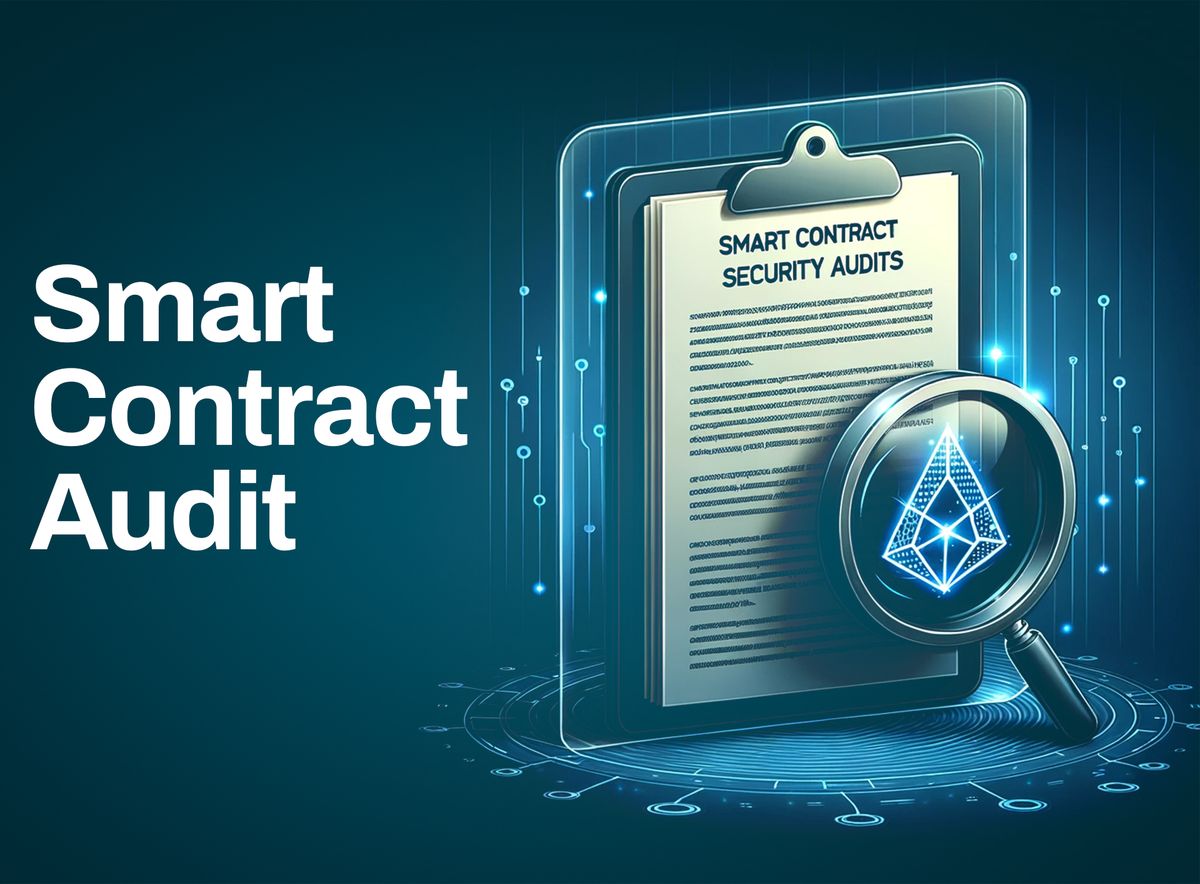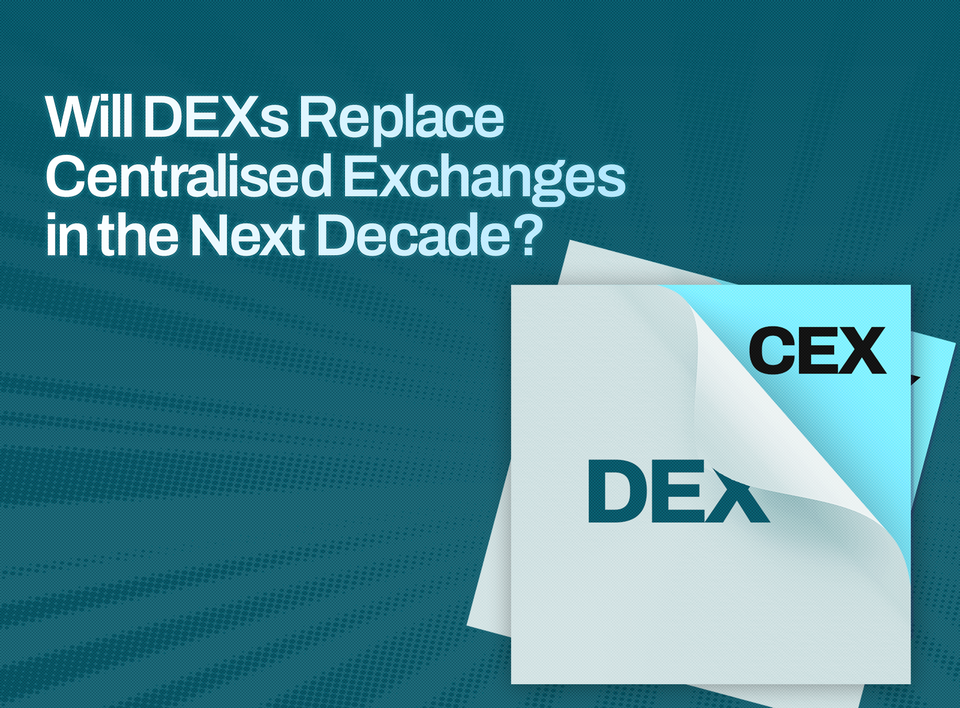What is a Smart Contract Audit?
A smart contract audit is a thorough review of the code used to create a smart contract, ensuring it works correctly and is secure from vulnerabilities.

Table of Contents
- Introduction
- What is a Smart Contract?
- What is a Smart Contract Audit?
- Why Are Smart Contract Audits Important?
- How is a Smart Contract Audit Conducted?
- Types of Smart Contract Audits
- Tools and Technologies Used in Smart Contract Audits
- Smart Contract Audit Firms
- Smart Contract Audits in Banking
- Wrapping Up
- FAQs
Introduction
Smart Contracts have evolved to become the backbone of the blockchain, as they are the foundation for the execution of automated transactions and operations that do not need the intervention of intermediaries.
However, the automatic and irreversible nature of smart contracts has generated costly errors, including the loss of huge amounts of user funds. Issues like this necessitated the implementation of smart contract audits to curb further damages and protect the fragility of smart contract executions.
One function of this audit is to ensure these contracts are secure and function as intended. But how does it work, and what are its other functions?
In this blog post, you will gain an in-depth understanding of smart contract audits, how they are conducted, the tools used for auditing, and more. But before getting into that, let’s reacquaint ourselves with what a smart contract is.
What is a Smart Contract?
A smart contract is a self-activating computer program that automatically executes, enforces, or verifies itself when predefined conditions are met in its code.
A smart contract runs on a blockchain, ensuring all transactions are executed without an intermediary, like a bank or a lawyer.
For instance, in a simple smart contract, if Person A sends money to Person B, the contract will only release the funds when certain conditions are met, such as delivery confirmation of a product. This automation makes transactions faster, cheaper, and more secure.
What is a Smart Contract Audit?
A smart contract audit is a thorough review of the code used to create a smart contract, ensuring it works correctly and is secure from vulnerabilities.
Smart contract auditing is essential because these contracts handle significant amounts of digital assets and perform critical functions in various applications, including DeFi (Decentralised Finance), NFTs (Non-Fungible Tokens), and banking. By using a smart contract audit, developers can identify and fix security issues before deploying the contract on the blockchain.
Why Are Smart Contract Audits Important?
1. Security Assurance:
Since smart contracts are self-executing and often handle significant amounts of digital assets, criminals can take advantage of any flaw, leading to the potential loss of funds. Conducting thorough smart contract auditing can identify and fix these flaws before deployment.
2. Building Trust:
Conducting a smart contract audit helps build trust among users and investors. When reputable smart contract audit firms have audited a smart contract, it demonstrates that the project has taken steps to ensure the reliability and security of its code.
3. Compliance with Standards:
Smart contract auditing ensures that the code complies with industry standards and regulations. For example, an Ethereum smart contract audit service will check if the code adheres to the best practices set by the Ethereum community. This helps maintain the integrity and functionality of smart contracts on blockchain networks like Ethereum and Polygon.
4. Cost Efficiency:
The cost of a smart contract audit is often far less than the potential losses from an unverified contract being exploited. The cost of a security breach can be catastrophic, both financially and reputationally. Investing in an AI or machine learning smart contract audit can save projects from significant financial damage.
5. Enhancing Functionality:
Smart contract audits also help enhance the contract's functionality. By reviewing the code, auditors can suggest improvements that make the contract more efficient and effective.
6. Preventing Downtime:
By identifying and fixing potential issues, smart contract auditing helps prevent downtime caused by bugs or manipulations. This ensures that the platform remains operational and reliable, which is critical for maintaining user confidence and smooth operations.
7. Promoting Innovation:
Smart contract audits promote innovation by allowing developers to experiment with new features and functionalities confidently. Knowing that their code will be rigorously tested and audited, developers can push the boundaries of what smart contracts can do, leading to significant advancements.
How is a Smart Contract Audit Conducted?
Here's a run-down of how smart contract auditing typically works:
1. Initial Review and Planning: The first step in a smart contract audit involves understanding the contract's purpose and scope. Smart contract auditing firms start by reviewing the project documentation to know what the contract is supposed to do. This helps them identify key areas to focus on during the audit.
2. Automated Testing: Auditors scan the smart contract code using automated tools. These tools, sometimes powered by AI and machine learning, help detect common vulnerabilities like reentrancy attacks or integer overflows. Automated tests are efficient and can quickly spot issues that might be missed during manual reviews.
3. Manual Review: Despite the power and accuracy of automation, there is always a need for human expertise. Experienced auditors manually examine the code to catch subtle bugs or logic errors that automated tools might overlook.
4. Simulation of Attacks: Auditors simulate various attacks on the contract to see how it performs under potential threats. For instance, in an Ethereum smart contract audit service, auditors might simulate common attacks specific to the Ethereum blockchain. This step is vital for identifying security weaknesses.
5. Reporting: After the testing phases, auditors compile a report detailing their findings. This report includes discovered vulnerabilities, their severity, and suggestions for fixes. The smart contract audit cost can vary depending on the complexity of the contract and the thoroughness of the audit.
6. Fixing Issues and Re-Audit: The development team reviews the audit report and fixes the identified issues. It's common for smart contract audit firms to offer a re-audit to verify that the fixes have been implemented correctly and no new issues have been introduced.
7. Final Report and Certification: Once all issues are resolved, a final report is issued. This report certifies that the contract has undergone thorough smart contract auditing and is safe for deployment.
Types of Smart Contract Audits
Each type of smart contract audit serves a specific purpose and targets different aspects of the smart contract. Here are the main types:
1. Manual Code Review:
A manual code review involves experienced auditors carefully examining the smart contract’s code line by line. This type of smart contract audit helps identify logical errors, security vulnerabilities, and potential bugs that automated tools might miss.
2. Automated Audits:
Automated audits use specialised software to scan the smart contract’s code for common vulnerabilities and errors. These tools can quickly detect issues like reentrancy attacks, overflow errors, and other security flaws. Automated audits are fast and efficient, making them a cost-effective option for initial assessments.
3. Formal Verification:
Formal verification involves mathematically proving that a smart contract behaves as intended. This type of audit uses advanced mathematical methods to verify that the contract’s logic is correct and adheres to specified properties. Formal verification is highly reliable but can be complex and expensive, so it is often reserved for high-stakes contracts.
4. AI and Machine Learning Audits:
AI smart contract audits utilise artificial intelligence and machine learning to identify potential flaws and optimise the auditing process. Machine learning smart contract audits can analyse vast amounts of data to detect patterns and predict security issues, improving over time as they learn from past audits.
5. NFT and DeFi-Specific Audits:
NFT smart contract audits focus on the unique requirements and vulnerabilities of non-fungible tokens, ensuring the authenticity and security of digital assets. DeFi smart contract audits are tailored for decentralised finance applications, which often involve complex financial transactions and require stringent security measures.
6. Compliance Audits:
Compliance audits ensure that smart contracts adhere to legal and regulatory standards. These audits are essential for industries like banking, where regulatory compliance is mandatory. Smart contract audits in banking verify that contracts meet all necessary legal requirements, reducing the risk of legal issues.
Tools and Technologies Used in Smart Contract Audits
1. Static Analysis Tools:
Static analysis tools examine the smart contract code without executing it. These tools identify potential vulnerabilities by analysing the code structure and logic. Examples include Mythril, popular for Ethereum smart contract audit services, and Slither, which offers fast and thorough code analysis.
2. Dynamic Analysis Tools:
Dynamic analysis involves running the smart contract in a controlled environment to observe its behaviour. Tools like Echidna and Manticore test the contract under different conditions to find vulnerabilities that static analysis might miss.
3. Formal Verification Tools:
Formal verification tools mathematically prove the correctness of smart contracts. These tools ensure that the contract behaves as intended in all possible scenarios. KEVM and Coq are examples of formal verification tools used in smart contract audits.
4. AI and Machine Learning Tools:
AI and machine learning tools are increasingly used in smart contract audits to enhance the detection of complex vulnerabilities. These tools analyse large datasets to learn patterns of vulnerabilities and predict potential issues in new smart contracts. Tools like Securify use machine learning to improve audit accuracy.
5. Code Review Platforms:
Code review platforms allow multiple auditors to collaborate and review the smart contract code. GitHub and GitLab are commonly used platforms where auditors can comment on code, suggest changes, and track issues.
6. Security Frameworks:
Security frameworks provide guidelines and best practices for writing secure smart contracts. OpenZeppelin is a widely used security framework that offers libraries and tools for developing and auditing smart contracts.
7. Test Networks:
Test networks, or testnets, simulate the blockchain environment to test smart contracts before deploying them on the main network. Ropsten and Rinkeby are popular Ethereum testnets used for smart contract audits.
8. Automated Testing Tools:
Automated testing tools run predefined tests on smart contracts to ensure they perform as expected. Truffle and Hardhat are popular tools for testing frameworks for Ethereum smart contract audit services.
Smart Contract Audit Firms

Smart contract audit firms are specialised companies that review and analyse smart contracts to ensure they are secure and free from vulnerabilities. These firms play a significant role in the blockchain ecosystem, providing services to developers, businesses, and organisations.
Below are some of the leading smart contract audit firms in the web3 and blockchain market:
1. CertiK:
CertiK is a leading smart contract auditing firm known for using advanced AI and machine learning technologies. They provide comprehensive audits for various blockchain platforms, including Ethereum, Polygon, and DeFi projects.
2. Quantstamp:
Quantstamp is another well-respected smart contract audit firm. They focus on providing audits for Ethereum smart contract audit services and have a strong track record in the industry.
3. Trail of Bits:
Trail of Bits offers high-quality smart contract auditing services, leveraging their extensive experience in cybersecurity. They provide audits for various blockchain platforms and applications, including smart contract audits in banking and other financial services.
4. OpenZeppelin:
OpenZeppelin goes beyond auditing – they are the architects of some of the most trusted security libraries in the Ethereum space. Their auditing services leverage this deep understanding of secure coding practices, offering a comprehensive solution for building and auditing robust smart contracts.
5. ConsenSys Diligence:
ConsenSys Diligence is part of ConsenSys, a major player in the blockchain industry. They provide comprehensive smart contract audits that help everyone—from startups to enterprises—launch and maintain their Ethereum blockchain applications. ConsenSys Diligence is known for its rigorous audit process, which focuses on security and reliability.
Smart Contract Audits in Banking
In recent years, banks have started integrating smart contracts into their operations to streamline processes and reduce costs. For instance, banks use smart contracts to manage and automate transactions like loan disbursements, asset transfers, and compliance checks. Given their critical role, ensuring these smart contracts are secure and function as intended is essential. This is where a smart contract audit becomes necessary in banking.
Smart contract audits in banking involve thoroughly examining the smart contracts banks use to identify vulnerabilities, bugs, and potential issues. The auditing process typically includes reviewing the code for security flaws, compliance with regulations, and properly executing the contract’s functions. Banks can prevent potential financial losses and protect sensitive data by identifying and addressing vulnerabilities before deployment.
Wrapping Up
As blockchain technology evolves, the framework used for smart contract audits is likely to evolve with it. AI and machine learning may also dominate this framework, although not wholly eliminating manual audits, with the way they are integrated into software analysis. What are your thoughts on this?
FAQs
Q1. What is a smart contract audit?
A smart contract audit is a thorough review of a smart contract's code and functionality to ensure it is secure and operates as intended.
Q2. Why is smart contract auditing important?
It prevents vulnerabilities that could lead to financial losses or exploitation.
Q3. What is the cost of a smart contract audit?
The cost can range from $5,000 to $50,000 or more, depending on various factors.
Q4. What tools are used in smart contract auditing?
Tools like MythX, Slither, and Oyente are commonly used.
Q5. How long does a smart contract audit take?
It can take anywhere from a few days to several weeks, depending on the contract's complexity.
Q6. What are the types of smart contract audits?
Manual audits, automated audits, and AI-based audits.
Q7. Can AI be used in smart contract audits?
Yes, AI smart contract audits use machine learning to detect vulnerabilities.
Q8. What sectors benefit from smart contract audits?
DeFi, NFTs, banking, and any other sector using blockchain technology.
Q9. What is an example of a smart contract failure?
The DAO hack in 2016, which resulted in a $60 million loss.
Q10. How do I choose a smart contract audit firm?
Look for experience, reputation, and comprehensive service offerings.
Disclaimer: This article was written to provide guidance and understanding. It is not an exhaustive article and should not be taken as financial advice. Obiex will not be held liable for your investment decisions.




